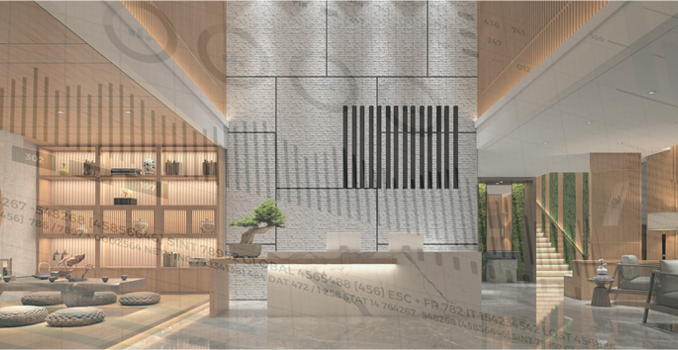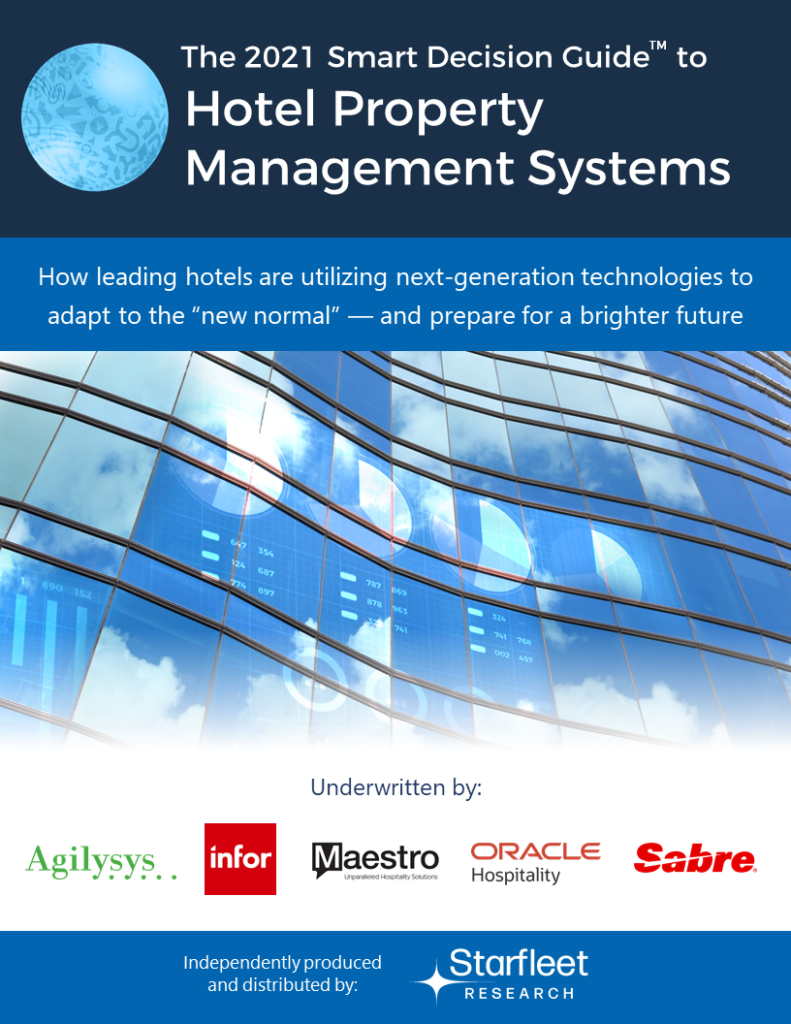
By Jeff Zabin, research director at Starfleet Research - 3.10.2021
Excerpted with permission from The 2021 Smart Decision Guide to Hotel Property Management Systems, which is now available for complimentary download. Click here to access the authoritative guide on how leading hotels are utilizing next-generation technologies to adapt to the “new normal” — and prepare for a brighter future.
Charles Darwin surmised that it is not necessarily the strongest or smartest who survive. Rather, survivors tend to succeed by being flexible and by being able to adapt quickly to new environments. Here the keyword is: agility.
The COVID-19 pandemic put Darwin’s theory to the test in the context of hotel readiness. The massive wave of cancellations of individual and group bookings that swept across the industry forced hotels of all sizes, and across all categories, to rapidly adjust their operational strategies. The hoteliers who were able to move swiftly to reduce operating costs and streamline business processes were generally those with a scalable and flexible technology infrastructure. In most cases, this infrastructure was built on an open API, enhanced connectivity that facilitates the communication and transfer of data between all key technology components, and a reporting dashboard that provides a complete, real-time view of activities and performance. In short, they had a technology infrastructure that enables agility.

Open connectivity to technology components that centrally connect and share data across all functions, departments, touchpoints, and properties (if more than one) is a far cry from the monolithic platforms of yesteryear that were originally developed to manage only basic front office tasks. Here it’s worth noting that a natively integrated solutions from a single solution provider that also supports API integration where needed can offer significant benefits in terms of lowering IT management costs as well as ongoing operational stability and upgrade management. End-to-end solutions from a single solution provider also tend to provide a more robust guest profile.
A next-generation PMS integrates with accounting software, keycard and access control systems, kiosks, internet and telephone systems, minibars, entertainment apps, and even transportation shuttles. It integrates with self-service tools; a web booking engine allows guests to select their room in the same way travelers can select seats on an airplane, for example, while a mobile app allows them to download a digital key to open the door. It integrates with IoT devices (which, by their very nature, limit interpersonal interactions and enable a contactless guest experience). Increasingly, these devices are turning standard hotel rooms into connected rooms with sensor-activated thermostats, voice-activated assistants and smart entertainment systems that guests can control from their mobile phone, tablet or an in-room display.

Among the advantages of a PMS that leverages cloud computing, open API marketplaces, data integration and technology connectivity (again, there may be benefits in using components from the same solution provider) is that the system is more accessible on an anytime, anywhere basis. It will also more readily “plug into” future hotel technologies. Importantly, it gives hoteliers the ability to drive continuous improvement in the area that matters most: guest satisfaction. Fact is, the PMS influences and informs, either directly or indirectly, practically all aspects of the guest experience, from handling guest inquiries to facilitating guest-facing activities to generating actionable insights about guest wants and preferences for the purpose of delivering personalized messages, offers and services.
Even core operational functions like managing reservations, rates and guest bookings, facilitating housekeeping assignments, checking guests in and out of the property, assigning guests to rooms, maintaining guest folios, coordinating profile changes, posting room charges and handling other billing requirements have a profound impact on the guest experience. Ultimately, the promise of a next-generation PMS is its ability to eliminate “friction” in guest interactions with the hotel while meeting guests’ ever-growing demands for convenience and personalization — and, now, social distancing and a contactless guest journey.
Excerpted with permission from The 2021 Smart Decision Guide to Hotel Property Management Systems, which is now available for complimentary download. Click here to access the authoritative guide on how leading hotels are utilizing next-generation technologies to adapt to the “new normal” — and prepare for a brighter future.
 Jeff Zabin serves as CEO of Starfleet Media and research director at Starfleet Research, the most recognizable name in best practices IT market research for hospitality. Each year, Starfleet Research benchmarks best practices in technology-enabled business initiatives across thousands of hotels, resorts and restaurants. Tens of thousands of executives read our premium content assets to gain actionable insights and make smarter business decisions. He also serves as managing editor of Hotel Technology News and Restaurant Technology News.
Jeff Zabin serves as CEO of Starfleet Media and research director at Starfleet Research, the most recognizable name in best practices IT market research for hospitality. Each year, Starfleet Research benchmarks best practices in technology-enabled business initiatives across thousands of hotels, resorts and restaurants. Tens of thousands of executives read our premium content assets to gain actionable insights and make smarter business decisions. He also serves as managing editor of Hotel Technology News and Restaurant Technology News.
Are you an industry thought leader with a point of view on hotel technology that you would like to share with our readers? If so, we invite you to review our editorial guidelines and submit your article for publishing consideration.
